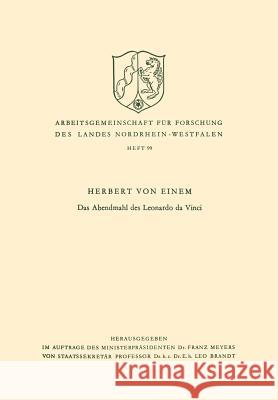Das Abendmahl Des Leonardo Da Vinci » książka
Das Abendmahl Des Leonardo Da Vinci
ISBN-13: 9783322961389 / Niemiecki / Miękka / 1961 / 76 str.
In Italy, and especially in Tuscany, the Last Supper has served as a regular theme for refectory pictures - the monks' daily meal serving as a remembrance and imitation of the sacred meal, which is at the same time a promise- bread and wine as the body and blood of the Lord "shed for many for the remission of sins." Representations of the Last Supper have been bound up in oriental and western art since the ninth century with the announcement of the betrayal. But the betrayal is a secondary theme. The crucial point lies in the institution of the eucharistic feast. Does Leonardo's "Last Supper" (painted, it is supposed, between 1495 and 1498 for the refectory of St. Maria delle Grazie in Milan) meet these intellectual and spiritual demands ? Or does the hallowed subject merely serve Leonardo as pretext for the treatment of representational and psycho logical problems? This talk is devoted to finding an answer to this question. The claims of the theme are ideally met in the oldest Italian representation of the Last Supper intended for the decoration of a refectory, the fresco ascribed to Taddeo Gaddi in S. Croce, Florence (middle of the 14th century).











